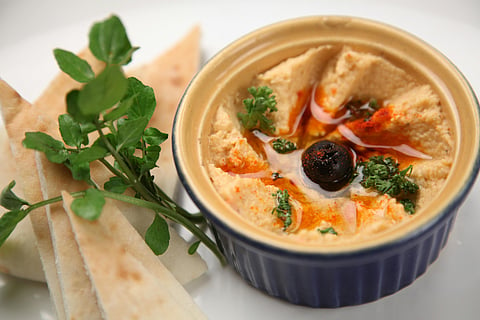
- LIFESTYLE
- FASHION
- FOOD
- ENTERTAINMENT
- EVENTS
- CULTURE
- VIDEOS
- WEB STORIES
- GALLERIES
- GADGETS
- CAR & BIKE
- SOCIETY
- TRAVEL
- NORTH EAST
- INDULGE CONNECT

Cities today, becoming more and more cosmopolitan are open to experimenting new things. New restaurants are opening up, specialising in new cuisines. One such cuisine which has found its place in hearts is the Mediterranean cuisine. It is known for its fresh ingredients, balanced flavours, and straightforward cooking techniques. It’s not about extravagant presentations or complex recipes—what makes it stand out is its focus on wholesome, seasonal food prepared in simple ways. At the core of most Mediterranean meals are vegetables, fruits, whole grains, legumes, olive oil, and lean proteins like fish or chicken. This combination not only makes the food tasty but also supports a healthy lifestyle.
One of the biggest strengths of Mediterranean cuisine is how naturally balanced it is. Instead of relying heavily on meat or processed foods, it uses plant-based ingredients as the foundation of meals. Vegetables are often grilled, roasted, or served raw in salads. Whole grains like bulgur, couscous, and farro are commonly used, adding both fiber and texture to the dishes. Olive oil replaces butter or cream, making the food lighter without sacrificing flavour.
The use of herbs and spices also sets this cuisine apart. Oregano, basil, rosemary, cumin, and mint are just a few of the many seasonings that bring depth to dishes without the need for rich sauces. Garlic, lemon, and vinegar are often used to add brightness and acidity, creating a fresh taste that defines the cuisine.
Another key aspect is the variety found across different Mediterranean countries. Italian, Greek, Turkish, Lebanese, and Moroccan cuisines all fall under the Mediterranean umbrella, each offering its own signature dishes and regional variations. Despite the differences, they all share a common approach—cooking with fresh ingredients, limiting processed foods, and enjoying meals slowly and socially.
Eating in the Mediterranean style is not just about the food itself; it’s also about how it’s eaten. Meals are often shared with family or friends, encouraging connection and mindful eating. Portions tend to be moderate, and snacking is minimal, which contributes to the overall health benefits.
Mediterranean cuisine is unique because it combines variety, simplicity, and balance. It’s a way of eating that’s good for the body, enjoyable for the palate, and easy to incorporate into daily life.
For more updates, join/follow our WhatsApp, Telegram and YouTube channels.